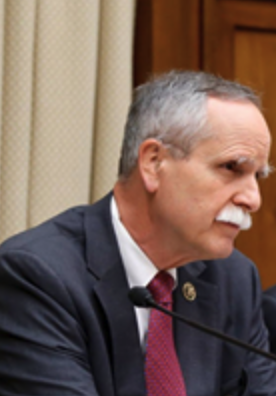WASHINGTON, D.C. — Yesterday, U.S. Representatives David B. McKinley (R-W.Va) and Peter Welch (D-Vt.) introduced bipartisan legislation that would address a loophole contributing to the rising cost of health care for consumers and threatening access to lifesaving medications.
“The 340B program was created to help hospitals who serve our rural communities with the skyrocketing cost of prescription drugs. Unfortunately, the pharmaceutical industry has abused loopholes and hurt rural hospitals and patients by charging exorbitant prices” McKinley said. “Our bill would put a stop to this by making sure that the orphan drug exclusion is used as intended, so that patients continue to get the treatment they need.”
“Drug companies have been taking advantage of the ‘orphan drug’ loophole since 2014 at the expense of consumers, and rural hospitals and healthcare providers,” Welch said. “Hospitals rely on the 340B program to ensure they are able to continue to serve rural and vulnerable Americans with health care needs. We cannot allow big drug companies to use this loophole to cash in at the expense of these hospitals and those they serve.”
The 340B Drug Pricing Program requires drug manufacturers to provide outpatient drugs to eligible health care organizations at significantly reduced prices. This includes Federally Qualified Health Centers, Critical Access Hospitals, Ryan White HIV/AIDS Program grantees, and certain types of hospitals and specialized clinics with a high proportion of Medicare and Medicaid patients. Current law excludes so called “orphan drugs,” which are designated by the Department of Health and Human Services and treat rare diseases, from this program. Drug companies take advantage of this loophole to charge higher prices for these drugs even when they are not used for the rare condition or disease that they received orphan status for.
The Closing Loopholes for Orphan Drugs Act would restore the original intent of Congress and close this loophole by limiting the ‘orphan drug’ exclusion to only apply in instances where the drug is used for the rare condition or disease for which it was designated. This will ensure the ‘orphan drug’ designation isn’t exploited to prevent offering the 340B discount for non-orphan uses of the same drug.

